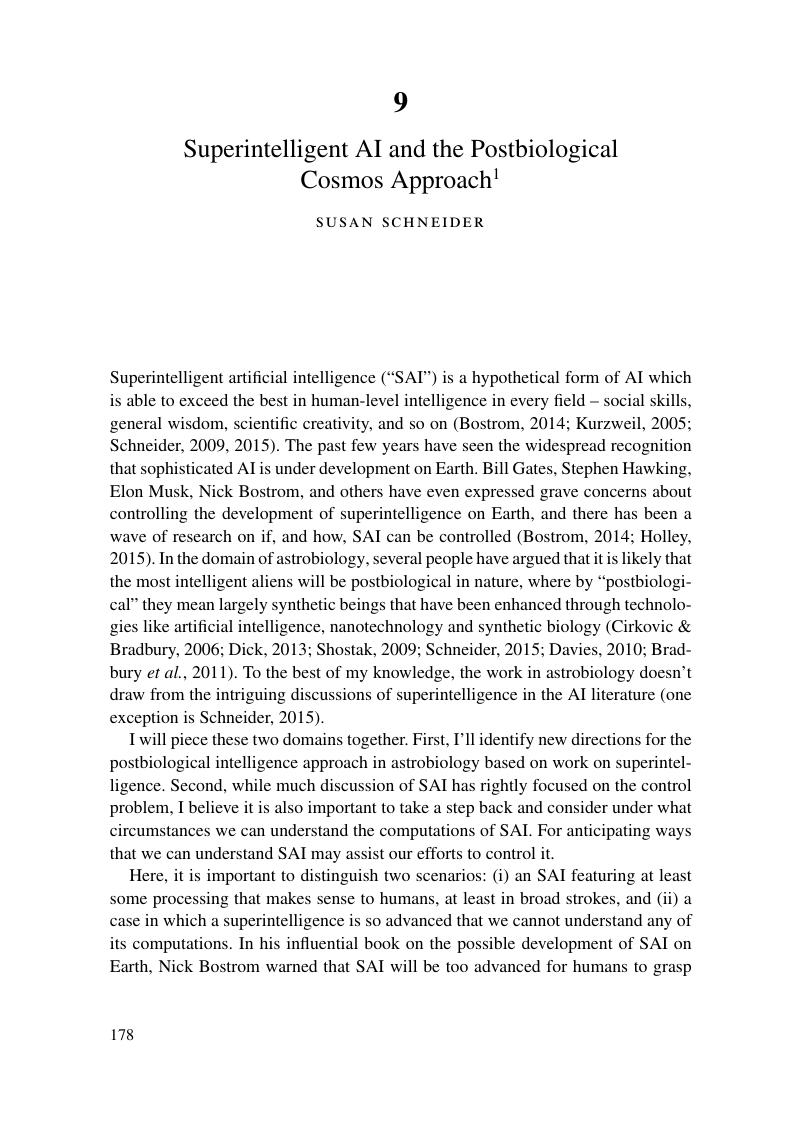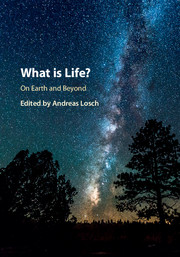Book contents
- What is Life? On Earth and Beyond
- Additional material
- What is Life? On Earth and Beyond
- Copyright page
- Dedication
- Contents
- Contributors
- Preface
- Introduction
- Science
- Philosophy
- 5 Science and Philosophy Faced with the Question of Life in the Twentyfirst Century
- 6 What is Life? And Why is the Question Still Open?
- 7 Is the Origin of Life a Fluke? Why the Chance Hypothesis Should Not be Dismissed Too Quickly
- 8 Some Contemporary – and Persistent – Fallacies and Confusions about Astrobiology
- 9 Superintelligent AI and the Postbiological Cosmos Approach1
- Theology
- Conclusion
- Index
- References
9 - Superintelligent AI and the Postbiological Cosmos Approach1
from Philosophy
Published online by Cambridge University Press: 08 July 2017
- What is Life? On Earth and Beyond
- Additional material
- What is Life? On Earth and Beyond
- Copyright page
- Dedication
- Contents
- Contributors
- Preface
- Introduction
- Science
- Philosophy
- 5 Science and Philosophy Faced with the Question of Life in the Twentyfirst Century
- 6 What is Life? And Why is the Question Still Open?
- 7 Is the Origin of Life a Fluke? Why the Chance Hypothesis Should Not be Dismissed Too Quickly
- 8 Some Contemporary – and Persistent – Fallacies and Confusions about Astrobiology
- 9 Superintelligent AI and the Postbiological Cosmos Approach1
- Theology
- Conclusion
- Index
- References
Summary

- Type
- Chapter
- Information
- What is Life? On Earth and Beyond , pp. 178 - 198Publisher: Cambridge University PressPrint publication year: 2017
References
- 4
- Cited by

